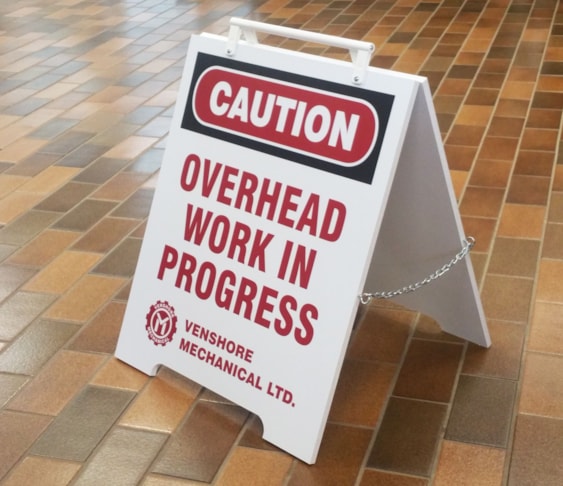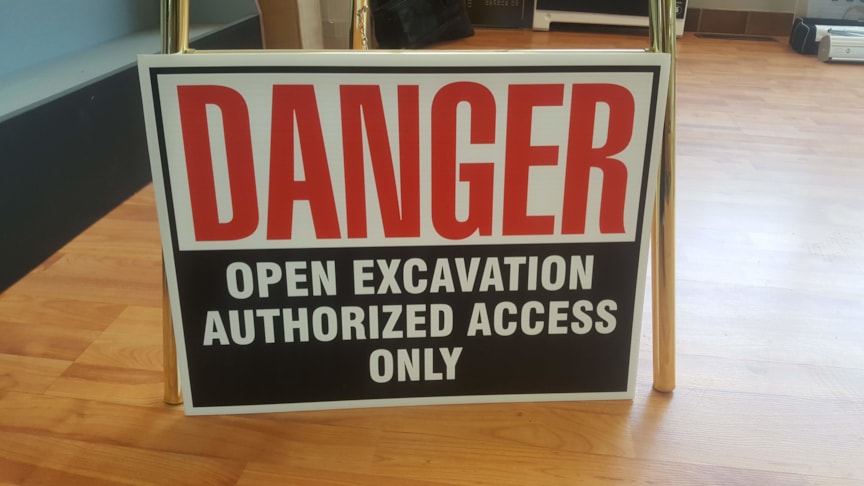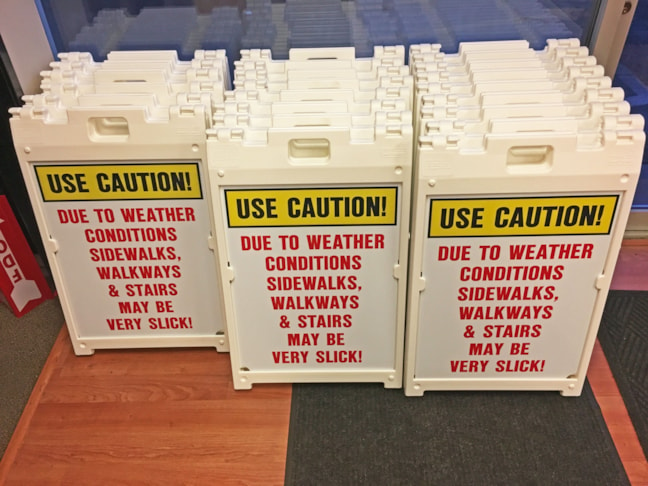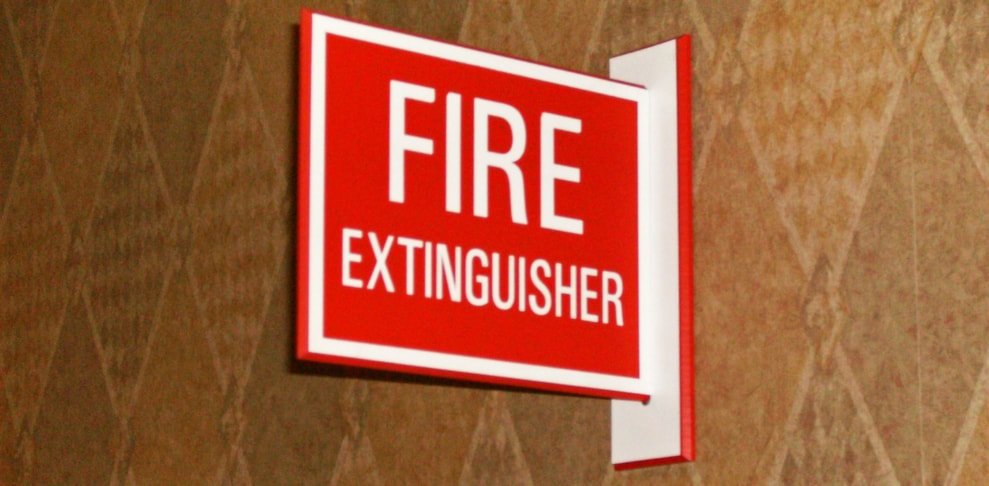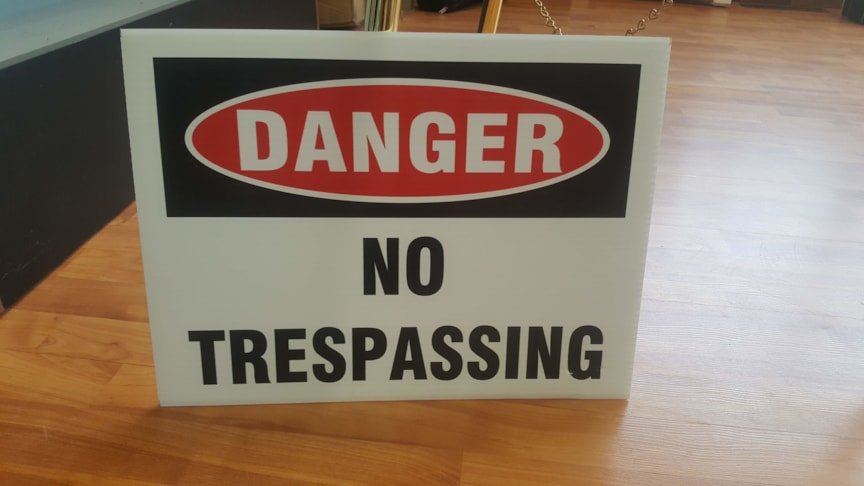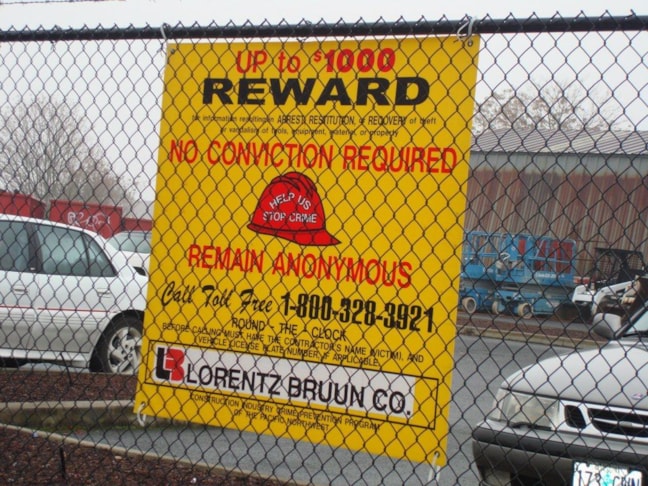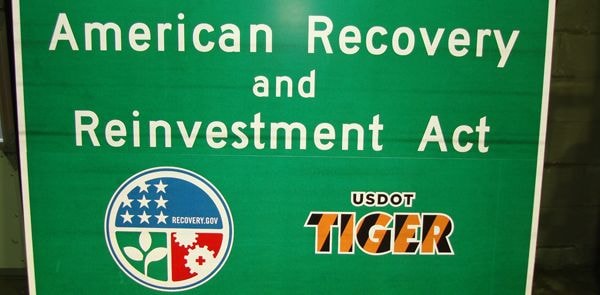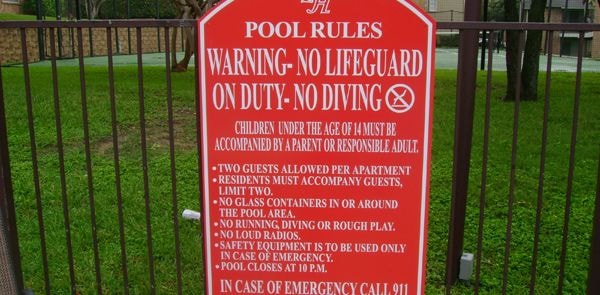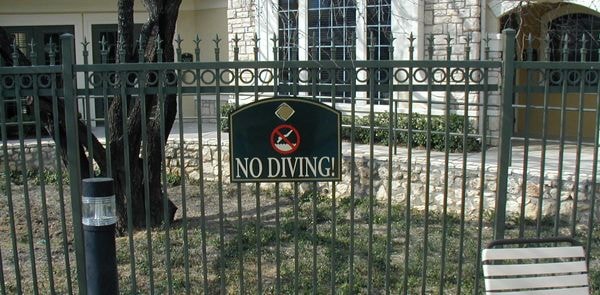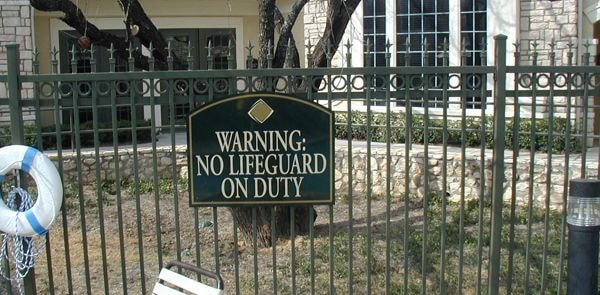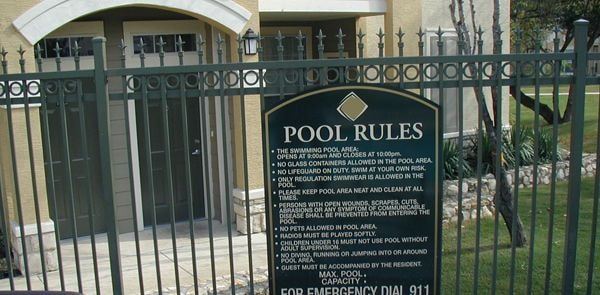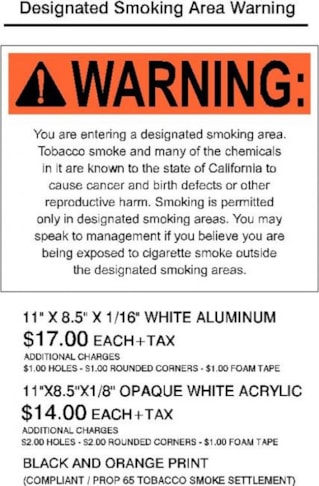Warning and Safety Signs
Ready to discuss your needs?
Meet regulations and put people first with warning and safety signs.
They’re everywhere: manufacturing facilities, hospitals, public commons, offices, you name it. Warning and safety signs are a necessary component to any compliant business or municipal structure. And there’s ample reason for their popularity – warning and safety signage improves operations across the board, identifies avoidable hazards, and makes entering and exiting a building (in the case of emergency) that much easier. At Signs Now, we produce durable, industrial-grade workplace warning, danger, and caution signs that not only adhere to OSHA regulations, but comply with ADA standards as well.
Have employees that speak an alternative language, or have trouble reading native English? Not an issue – bilingual safety signs are more common than you think, and Signs Now knows how to build them. Worried about access and egress among those who are visually impaired? Braille is a specialty of ours, and as a result, we craft custom ADA signs with precision and expertise.
Why is it so important to identify hazards and address them?
Hazards in any work environment are easy to overlook. Many employees get caught up in their assigned tasks after all, while visitors don’t feel it incumbent upon themselves to address another organization’s safety issues.
Hazard identification is the first, and most fundamental element, in managing workplace risks. How can anyone prevent workplace injuries or deaths if they haven’t identified the potential causes of such unfortunate accidents? After hazards are identified, a qualitative analysis of the frequency and cost of potentially damaging occurrences can be conducted in the form of risk assessment. Of course, there’s no value anyone can place on a potential loss of life.
This data can then be utilized to determine if you need certain regulatory signage, to protect your workers, productivity, and your company from liability claims.
The Key Components that Make Up a Safety Sign
- Safety Alert Symbol – A triangle with an exclamation point placed within, a safety alert symbol indicates a potential personal injury hazard exists. These are only used on danger, warning and caution tags, labels, and signs. Do not use these on signs that indicate the risk of property damage.
- Signal Words for Hazard Alerting Safety Messages – These signal words consist of three primary warnings, most of which you’ve likely already seen in vehicles, buildings, and offices.
- CAUTION – A header containing this message indicates a hazardous situation that could result in minor to moderate injury. An example may be an “slippery when wet” or “watch your step” sign. Caution signs are always yellow.
- WARNING – A header containing this message indicates a hazardous situation that could result in serious injury or death. An example may be an “high voltage” or “extremely flammable” sign. Caution signs are always orange or amber.
- DANGER -- A header containing this message indicates a hazardous situation that will result in serious injury or death. These signs are reserved for the most perilous situations, in which physical harm is a certainty. An example may be an “demolition work in progress” or “crane working overhead” sign. Caution signs are always red.
- Signal Words for Non-Hazard Alerting Safety Messages – The most common signal word in this category is NOTICE, which highlights important information that is not directly hazard-related; for example, security, hygiene, PPE (Personal Protection Equipment), or property damage.
- Signal Words for Instructional Safety Messages – SAFETY INSTRUCTIONS is the signal word used to indicate forthcoming – wait for it – procedures and instructions! These often have a green header with white typography.
- Symbols – Symbols transcend language. They’re also easy to understand in a chaotic environment, while drawing more attention than a wall of text under the same conditions. Signs Now uses particular shapes, colors, and design principles to meet ADA and OSHA compliance objectives.
- Text Messages – No, these aren’t the little blurbs you send to your spouse when you forget to feed the goldfish in the morning. Effective safety signage requires meticulously crafted text, with little to no ambiguity. For a safety sign to reach the intended audience in a concise, cogent manner, messaging should be given top priority.
Exit and Entrance Signs
According to OSHA standard 1910, every exit must be clearly visible and marked by a sign reading “exit.” The color of these illuminated signs will either be green or red, depending on state law. Aside from the obvious compulsion from regulatory authorities, there are a few other compelling reasons to include exit and entrance signage in your complex:
- Facilitating Your Exit Strategy – By clearly marking possible exits, you avoid having visitors and employees returning to the doorway they remembered entering from. This will diminish bottlenecks and potential human stampedes.
- Ensuring Visibility – Exit signs are illuminated, which means in instances of poor visibility, such as a fire or building collapse, they act as a lighted beacon.
- Lighting the Way – In the event of a power outage, exit and entrance signs operate off of their own battery backups. So, you’ll always be able to make your way to the outside, even in the dark.
Ready to take the next step with warning and safety signs?
Contact us today and set up a consultation. We’ll discuss your needs and find the solution best-suited to your business. You can count on Signs Now for measurement, design, and permitting (when required) as well as mounting or installation. Every location is a local source for custom graphics, signage and displays. Second-to-none in delivery time and quality signs, at Signs Now, we take safety signage seriously.
Related Blogs:
Commissioning Your Perfect Sign
Infographic: Sign Up For Work Site Safety
Call Signs Now Monroe-LA at (318) 398-8990 for more information.

